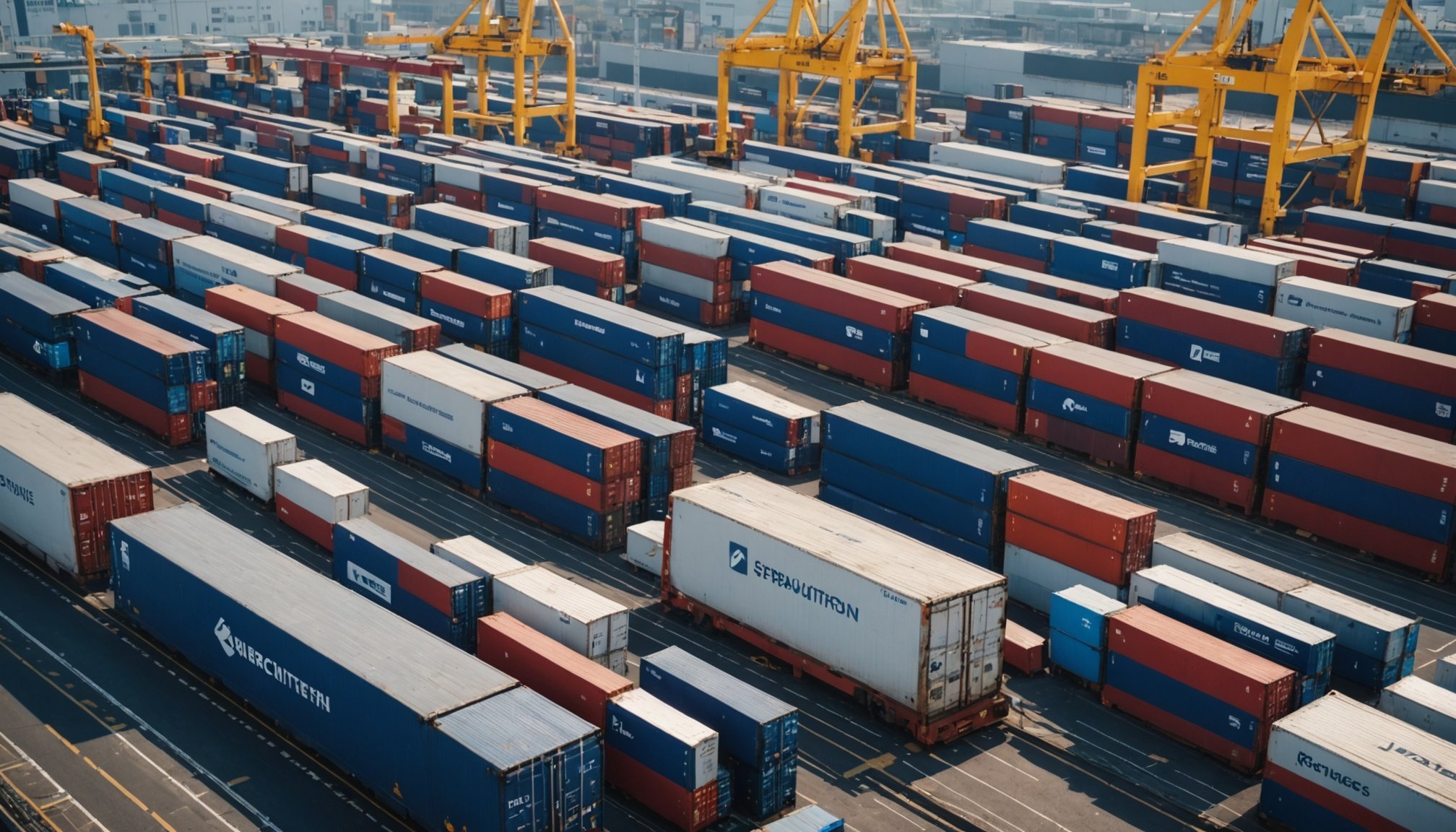Overview of Post-Pandemic Supply Chain Challenges
Since the onset of COVID-19, supply chain disruptions have profoundly impacted the logistics, production, and inventory management sectors. The pandemic resulted in a cascade of unpredictability, stretching traditional models of operation beyond their limits. Notably, the COVID-19 impact has caused significant upheaval in how goods are transported and stored, compelling companies to reassess their entire supply chain structures.
In the UK, these disruptions have translated into unique challenges. Industries such as automotive and electronics, heavily reliant on global supply lines, faced acute shortages due to halted production and shipping delays. On the other hand, sectors like food distribution managed differently, emphasizing local sourcing efforts to adapt to ever-changing circumstances.
Also read : Exploring the distinctive features of the uk’s public vs. private healthcare systems
A further illustration of UK business challenges emerged in inventory management. Traditional just-in-time approaches collapsed under the weight of delayed shipments, prompting businesses to reconsider stockpiling strategies to buffer against future supply chain disruptions. Consequently, companies now underscore the importance of developing flexible frameworks to absorb the shocks of such global phenomena, ensuring resilience in the face of unpredictable crises. This shift is crucial to maintaining continuity and reliability in supply chains moving forward.
Strategies Employed by UK Businesses
UK businesses have had to develop adaptive strategies in response to the pandemic’s disruption. Many companies embarked on transforming their supply chain frameworks to better withstand future crises. A significant shift has been towards enhancing supply chain resilience, with businesses adopting diversified sourcing approaches to avoid over-reliance on single suppliers. This adaptation has proved crucial in mitigating risks associated with global shortages.
Also read : Exploring the distinctive features of the uk’s public vs. private healthcare systems
Several UK companies provide compelling case studies of success during these challenging times. For instance, a leading UK retailer invested heavily in digital processes, utilising real-time data analytics to optimise inventory and manage demand fluctuations adeptly. Such investments have allowed them to maintain operational fluidity, ensuring customer satisfaction amidst unpredictability.
Innovation and technology have been pivotal in these transformations. Many businesses have adopted advanced software solutions to enhance efficiency and identify potential supply chain vulnerabilities. Implementing automation processes has further helped by streamlining production lines, reducing human error, and increasing capacity for rapid response to market shifts. With these adaptive measures, UK companies have fortified their supply chains against unforeseen challenges, setting a benchmark for resilience and agility in the post-pandemic economic landscape.
Government Policies Supporting Supply Chain Recovery
Government intervention has been pivotal in stabilizing supply chains post-pandemic, as highlighted through targeted policy analysis and economic support. Numerous initiatives were introduced, aiming to alleviate the mounting pressures businesses face. Key among these interventions were financial support programs that provided essential liquidity, allowing enterprises to manage disruptions caused by supply chain constraints.
Regulatory changes also played a significant role. These adjustments aimed at creating a more favorable environment for businesses struggling with logistical delays and inventory shortages. By streamlining customs procedures and reducing tariff barriers, the government has facilitated smoother international trade operations, crucial for UK businesses reliant on global supply chains.
Moreover, direct financial injections and tax incentives were part of broader economic measures supporting recovery efforts. Such initiatives enabled businesses to invest in technology and enhance operational efficiencies, thus enabling quicker adaptation to market demands. The comprehensive approach underscored the government’s commitment to rebuilding robust and resilient supply chains, ensuring that industries can rebound and thrive against future disruptions.
Expert Opinions on Future Supply Chain Trends
Understanding future supply chain trends is critical for maintaining a competitive edge in the evolving market landscape. Supply chain experts predict an increased emphasis on sustainability and local sourcing to reduce dependency on volatile international markets. This shift aims to mitigate risks associated with global disruptions and enhances resilience.
According to industry analysis, maintaining a balance between global and local sourcing is key. Experts suggest that companies should incorporate sustainability practices by investing in green technologies and efficient logistics systems. Such innovations not only reduce environmental impact but also optimize operations by lowering costs.
Expert insights also highlight the role of global market dynamics in shaping the future of UK supply chains. As geopolitical tensions and trade policies evolve, businesses must stay informed of these changes to navigate potential obstacles. It is recommended to cultivate robust networks and maintain agile operational frameworks capable of adapting swiftly to external influences.
The consensus among experts is that businesses focusing on sustainability, technological integration, and proactive market analysis will be better positioned to handle future challenges. This forward-thinking approach can ensure that supply chains remain robust and adaptable in an ever-changing environment.
Actionable Strategies for Supply Chain Management
For effective supply chain management, companies need to focus on implementing best practices to enhance operational efficiency. One practical recommendation is diversifying suppliers to avoid dependency risks. Leveraging a mix of local and global suppliers can provide flexibility, mitigating risks from disruptions.
Risk management and contingency planning are crucial. Companies should develop comprehensive crisis response plans that outline procedures for unexpected events. This proactive approach requires regular risk assessments to identify vulnerabilities within the supply chain. Implementing technology, such as predictive analytics, can aid in anticipating issues before they arise.
Continuous evaluation and adaptation are necessary to ensure supply chains remain resilient. Periodic strategic reviews can provide insights into areas needing improvement and foster innovation. Encouraging cross-functional teams to collaborate ensures different parts of the organisation align, further strengthening the supply chain.
To encapsulate these strategies, businesses can consider:
- Enhancing communication channels to improve visibility across the supply chain.
- Investing in training programs for employees to manage sophisticated logistics technologies.
- Setting up pilots or experimental programs to test and refine new strategies.
These actionable strategies enable businesses to maintain robust, adaptable supply chains, ready to overcome challenges in the post-pandemic landscape.
Future Outlook for UK Supply Chains
The future challenges facing UK supply chains revolve around increasing complexity and demand for adaptability. Industry forecasts predict that uncertainty in global markets will necessitate a transformation in traditional supply chain practices. Companies are expected to embrace technologies like artificial intelligence and blockchain, fundamentally enhancing supply chain evolution through real-time data insights and improved transparency.
Experts agree that proactive industry forecasts will be crucial for staying ahead. Anticipating changes in consumer demand and adjusting logistics accordingly will be vital for maintaining competitiveness. The role of technology in reshaping supply chains cannot be overstated; incorporating innovative solutions will allow for greater flexibility and efficiency in operations.
Flexibility and innovation are key. A company’s ability to pivot and integrate new methodologies will dictate its resilience against future disruptions. As the landscape evolves, fostering a mindset open to continuous improvement will be essential. Strategic partnerships and collaborations across international borders will also play a significant role in overcoming hurdles related to market dependencies.
Overall, the success of UK supply chains will largely depend on strategic planning and the adoption of cutting-edge technologies to navigate the intricacies of the global market effectively.
Global Influences on UK Supply Chains
The global supply chain dynamics have a significant impact on the UK’s supply chains, steering market dependencies and shaping international trade patterns. In recent years, these influences have become even more pronounced, with geopolitical tensions and economic policies altering the course of trade. Companies reliant on international markets face increased volatility, a challenge that underscores the importance of adaptable supply strategies.
For instance, with the UK’s exit from the European Union, trade agreements and tariffs have evolved, compelling businesses to reassess their supply chain reliance on European markets. This shift has prompted companies to diversify their sourcing, redirecting efforts towards Asia and other global regions, to buffer against disruption and uncertainty.
Case studies highlight adaptive strategies like these, illustrating how firms are navigating the complexities of market dependencies. By broadening their supplier base, UK companies aim to mitigate risks associated with political instability and economic fluctuations.
Furthermore, geopolitical factors, such as trade wars or sanctions, directly influence supply chain stability. Businesses must remain vigilant, keeping informed of changing global policies and establishing resilient frameworks to counteract potential disruptions. These considerations are paramount for maintaining uninterrupted operations in an interconnected global economy.









